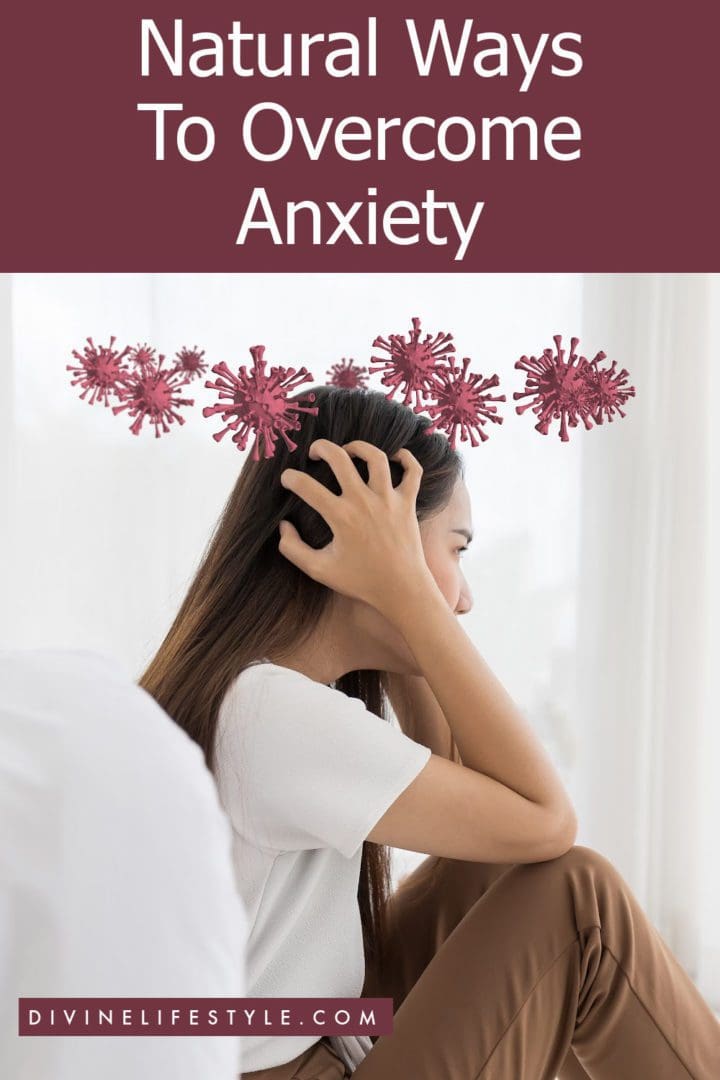Overcoming Shyness and Social Anxiety
Overcoming Shyness and Social Anxiety
We live in a fast-paced and often chaotic world. Our minds are constantly stimulated by too much information, and when we add that to the regular ups and downs of everyday life, it can leave many of us feeling ridden with anxiety. Anxiety issues affect almost twenty percent of the US adult population every year. For some people, it comes and goes, and for others, it remains, day in and day out, year after year. Fortunately, there are ways that we can try and deal with and overcome our anxiety naturally. Overcoming shyness and social anxiety can be a journey, but it's achievable with the right tools and support. We hope that this Overcoming Shyness and Social Anxiety post inspires you.

Overcoming Shyness and Social Anxiety
Unplug From Social Media
Social media can have many benefits, and it's a great way to stay connected with friends and family as we all have moved to different corners of the country or maybe even the world. It's also fun to share your adventures and have a place you can return to relive beautiful memories you've experienced in travels or your backyard. Instagram is almost like a pocket-sized digital photo frame if you think about it.
But, another reality is that sometimes, spending too much time on social media networking sites can leave you feeling isolated and in a negative mindset. So, it's a good idea to unplug from social media as often as you can. Whether that looks like setting strict limits like only looking at it once a week or setting time limits per day, the world will not end if you don't check your social media platforms – but your anxiety will lessen.
Challenge Negative Thoughts
Identify your inner critic: What are the negative thoughts you tell yourself in social situations? Are they realistic or helpful? Our thoughts play a big role in how we feel. Identify negative thoughts you have about social situations and challenge them with more realistic and positive ones. Reframe those thoughts: Challenge negative thoughts with more balanced and positive ones. For example, instead of “Everyone will think I'm awkward,” try “It's okay if I'm not perfect, everyone feels nervous sometimes.” Instead of thinking “Everyone will judge me,” try “People are usually too focused on themselves to notice my every move.”
Focus on others
When you're nervous, it's easy to get caught up in your head. Instead of being hyper-focused on yourself, shift your attention to the other person and what they might be feeling by asking questions and actively listening. This can take the pressure off yourself and make the conversation more enjoyable for both of you.
Gradual exposure
Don't try to push yourself into overwhelming situations right away. Start small with interactions that feel manageable, like saying hello to a neighbor or striking up a conversation with a cashier. As you gain confidence, gradually increase the difficulty.
Practice social skills
Just like any other skill, social interaction can be improved with practice. Role-play conversations with a trusted friend or family member or practice initiating conversations with strangers. Join a club or group focused on an activity you enjoy, or take a public speaking class.
How to Fight Morning Anxiety
Breathwork, Meditation, Or Prayer
Whatever medium you trust to help keep you grounded, it's a good idea to turn to that in times of anxiety. If you are a believer, prayer can be a powerful tool in your toolkit. If that's not your style, just grounding yourself through powerful breathwork is an excellent anxiety reducer. Meditation is another way not only to center yourself but to calm anxiety and provide you with tools to overcome it as well. When anxiety arises, practice relaxation techniques like deep breathing, mindfulness meditation, or progressive muscle relaxation. These can help calm your body and mind, making it easier to interact with others.
If you're new to breathwork and meditation, many online platforms are available to teach you and strengthen this skill set. Many of them are free. So, whether you're a novice, intermediate, or even well-seasoned meditator, it's a good idea to have at least one app that you know you can turn to when you're feeling overwhelmed. Though we may not always be able to pin down the causes of our anxiety, it's great to know how to combat it!
Consider therapy
If you're struggling to manage your shyness or social anxiety on your own or if it's so severe or interferes with your daily life, seeking professional help from a therapist or counselor can be extremely beneficial. They can provide personalized guidance, support, and coping mechanisms based on your individual needs.
Rewarding Yourself From Time To Time
Acknowledge your progress, no matter how small it seems. In the same way, positive reinforcement works for children, it works for us as adults too. So on days where you've felt particularly anxious, and you've overcome it whether through breathwork or exercise or any other manner, go ahead and treat yourself! Maybe there are some bikini sets that you've been lusting after; go ahead and splurge! It could even be as simple as treating yourself to a decadent dessert you might not usually order or make. But, go ahead and positively reinforce the hard work and commitment you have made to strengthen your mental health.
Exercise Does A Body Good
In the same way, exercise is excellent for our physical health, and it does incredible things for anxiety levels. So, if you can, get out there for a brisk walk or a nice jog. If that's not your style, yoga and pilates can be very relaxing and grounding. But, exercise has been proven to release powerful chemicals in the brain that help you combat those feelings of being overwhelmed and anxious, so make sure you prioritize your mental health by taking charge of your physical health.
Natural Supplements Can Help
If your anxiety is mild and occasional, there are natural supplements that have been shown to help with anxiety. Things like CBD oil have been touted to help people suffering. You can also consider incorporating passionflower supplements into your daily routine. Of course, suppose you're on regular prescription medication. In that case, it's a good idea to check in with your doctor or, at minimum, a pharmacist to ensure no interactions the supplements may have with your other medications.
Tips on Being Kind to Yourself
- Focus on progress, not perfection: Don't get discouraged by setbacks. Every interaction is a learning experience, and celebrate small victories along the way.
- Be kind to yourself: Treat yourself with compassion and understanding. Remember that everyone feels shy or anxious sometimes.
- Develop your interests: Pursuing activities you enjoy can boost your confidence and give you something to talk about with others.
- Celebrate your unique qualities: Everyone has something special to offer. Embrace what makes you different and don't try to be someone you're not.
- Take care of yourself: Make sure you're getting enough sleep, eating healthy foods, and exercising regularly. Taking care of your physical health can also improve your mental well-being.
Resources
Recognize, however, that sometimes anxiety can't be controlled naturally alone. While there is nothing wrong with taking a holistic approach to finding balance and an anxiety-free life, reach out to your GP, a therapist, or a psychiatrist if you are genuinely struggling. There is nothing wrong with needing prescription medication to help you through the rough seasons of life. And remember, if no one told you today, you are loved, and you are enough. We hope that this Natural Ways To Overcome Anxiety post inspires you. Here's to your health!
Why Being Scared of Flying is Silly






Pingback: How To Find a Fantastic Real Estate Agent in Your Community
Pingback: How to Overcome Writers Block